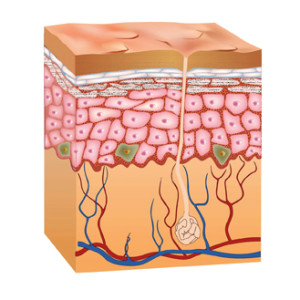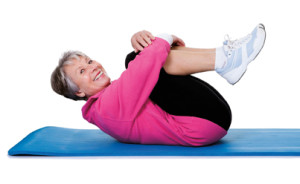Quick Reads
Posted on February 2, 2014 by bob in NewsUCanUse
Balance Work and Life: Exercise!
A forthcoming study in Human Resources Management found that exercise plays a role in how individuals feel they can manage conflicts between work and their personal life. Such conflicts can be categorized in two ways: 1) job-based pressures interfering with family, either time-wise or psychologically; 2) personal issues competing with work time.
“Individuals who exercised regularly were more confident they could handle the interaction of their work and home life and were less likely to be stressed at work,” said Russell Clayton, lead author on the paper. “The idea sounds counterintuitive. How is it that adding something else to our work day helps to alleviate stress and empower us to deal with work-family issues?”
Researchers concluded exercise is a way to psychologically detach from work, both physically and psychologically, suggesting employers can help employees with work-life balance by encouraging them to exercise.
 Hope for Age-Related Memory Loss
Hope for Age-Related Memory Loss
A protein deficiency in the brain (officially termed protein RbAp48) was found to be a major contributor to age-related memory loss, memory loss that is reversible. In a recent study published in the journal Science Translational Medicine, Nobel Laureate Eric Kandel, M.D. of Columbia University, announced that this memory loss is not related to Alzheimer’s and is in fact a syndrome in its own right.
Kandel and his colleagues say “senior moments” – amnestic difficulties – may actually be caused by a drop-off of this protein, which is found in the brain’s hippocampus region. Researchers are now working to find ways to restore the protein and with it, hopefully, a person’s faulty memory. – Johns Hopkins Health Alert
Cholesterol-Busting Foods
Research increasingly shows adding certain foods can lower cholesterol levels. A 2011 study in the Journal of the American Medical Association found people with high cholesterol who ate a diet rich in plant sterols, soluble fibers, soy protein and nuts, lowered their low-density lipoprotein (LDL or “bad”) cholesterol levels almost 14%, compared with a diet low in saturated fat.
Plant sterols and stanols are compounds structurally similar to cholesterol. They partially block absorption of cholesterol from the small intestine, lowering “bad” cholesterol without adversely affecting high-density lipoprotein (HDL or “good”) cholesterol.
The American Heart Association recommends people unsuccessful in lowering their cholesterol through lifestyle changes, boost their intake of soluble fiber to 25 grams/day. Good sources of soluble fiber include peas, beans, oats, barley, carrots, apples and prunes.
Nuts are high in fat, but the fats are predominantly monounsaturated and polyunsaturated, which are known to decrease “bad” cholesterol levels. Nuts shown to help lower LDL cholesterol levels include almonds, walnuts, peanuts, pecans, macadamias and pistachios.
– Johns Hopkins Health Alert
 Skin Aging, Sleep Deprivation Linked
Skin Aging, Sleep Deprivation Linked
A first-of-its-kind clinical trial found sleep quality impacts skin function and aging. The recently completed study at University Hospitals (UH) Case Medical Center, commissioned by Estée Lauder, demonstrated that poor sleepers had increased signs of skin aging and slower recovery from a variety of environmental stressors, such as disruption of the skin barrier or ultraviolet (UV) radiation.
Chronic sleep deprivation has been linked to medical problems such as obesity, diabetes, cancer and immune deficiency, but its effects on skin function have been unknown. Skin functions as an important barrier from external stressors such as environmental toxins and sun-induced DNA damage. The research team set out to determine if skin function and appearance is also impacted by sleep quality, which is vital to the growth and renewal of the body’s immune and physiological systems.
Exercise Decreases Pain, Improves Mobility 
It’s never too late to reap the benefits of exercise. An exercise program consisting mainly of chair-based exercises and beginner yoga classes offered in New York City senior centers by Hospital for Special Surgery instructors has helped decrease pain, improve mobility and enhance the overall health of many participants.
Nearly all respondents were females age 65 or older. In the survey, many participants reported that their pain intensity dropped and interfered less with their quality of life. The most noteworthy results are:
~ 83% more participants could bend, kneel or stoop
~ 69% more participants could climb several flights of stairs after the program
~ 50% more participants could lift/carry groceries
~ 48% fewer participants had pain on a daily basis after completing the program
~ 39% of participants felt the program reduced their fatigue
~ 30% participants felt that the program reduced their stiffness









